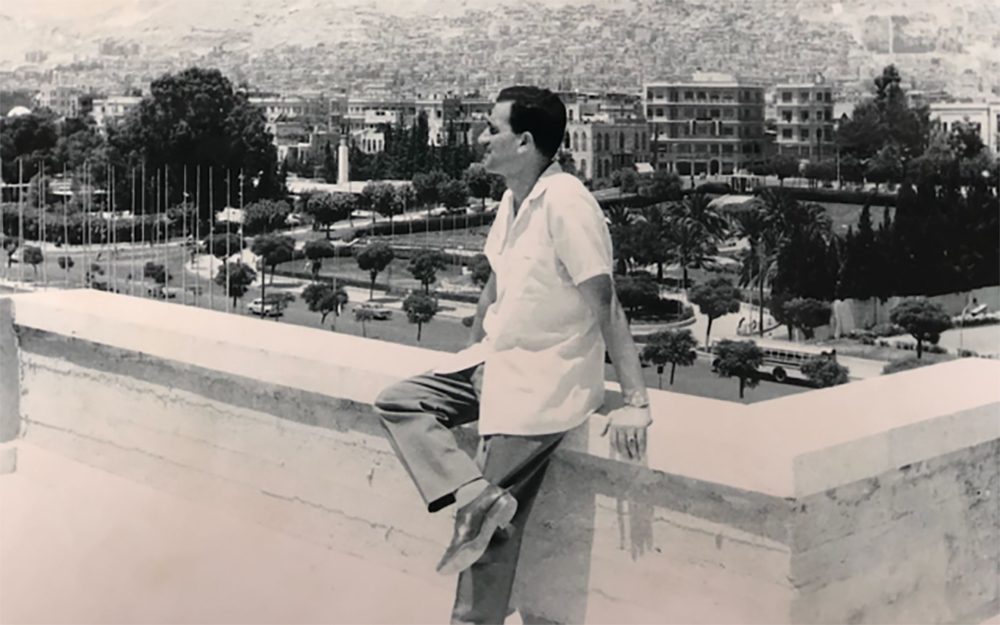Edited by: TJVNews.com
Mossad Director David Barnea on Monday publicly revealed for the first time the last telegram the intelligence agency received from spy Eli Cohen prior to his capture in Syria, as was reported by the Jewish News Syndicate.
The telegram, which was revealed during the dedication of the Eli Cohen Museum in Herzliya, is dated Feb. 19, 1965, the day on which Cohen is believed to have been captured, according to the JNS report. In it, Cohen reports on a Syrian General Staff meeting held the previous evening with the participation of then Syrian President Amin al-Hafez.
“I will honor this holy place and reveal, for the first time, following in-depth research that was carried out recently, that Eli Cohen was not captured due to the quantity of his transmissions or pressure from headquarters to transmit too frequently,” said Barnea, as was reported by JNS. “Eli Cohen was captured because his transmissions were simply intercepted and triangulated by the enemy. This is now an intelligence fact.”
Cohen’s capture has been the subject of conjecture over the years, with some arguing that he was caught because the Mossad demanded that he transmit too much information, compromising his position, as was reported by JNS.
“Eli Cohen was among our best agents,” said Barnea, JNS reported. “He continues to influence us and instill in us a fighting spirit, courage, values and devotion—even from the depths of history,” said Barnea. “He is a source of inspiration not only to today’s agents but to all Mossad employees in their various positions. We all learn from him, even today. From his Zionism, his sacrifice and his dedication.”
He said the Mossad would donate the original document containing Cohen’s transmission to the new museum established in his memory, according to a Times of Israel report.
Barnea praised Cohen’s “contribution to the security of Israel” and said Israel’s national intelligence agency would continue to seek more information about the time Cohen spent in Syria, TOI reported.
The Times of Israel also reported that Cohen infiltrated the top echelons of Syria’s political leadership in the years leading up to the 1967 Six Day War. The information he obtained is believed to have played a key role in Israel’s overwhelming success in that war.
Barnea praised Cohen’s “contribution to the security of Israel” and said Israel’s national intelligence agency would continue to seek more information about the time Cohen spent in Syria.
He also vowed to continue the search for Cohen’s remains, according to the TOI report.
In February 2021, it was reported that Russia, in cooperation with Syrian authorities and under Israeli pressure, was searching the area of the Yarmouk refugee camp in southern Damascus for Cohen’s body in order to transfer it to Israel, the TOI report indicated.
The following month, an object believed to have belonged to Cohen was reportedly transferred to Israel, according to the TOI report. Quoting an unnamed Syrian government source, Israeli reports said at the time that the item could be a document or an article of Cohen’s clothing.
Then-prime minister Benjamin Netanyahu’s office denied the reports and it remains unknown whether such an object actually existed.
Born in December 1924 in Egypt as Eliyahu Ben-Shaul Cohen, to a devout Mizrahi Jewish and Zionist family, he attended Cairo Farouk University, as was reported by Wikipedia.org.
His parents and three brothers left for Israel in 1949, but he remained to finish a degree in electronics and coordinate Jewish and Zionist activities. Prior to the 1952 Egyptian Revolution, Cohen was arrested and interrogated over his Zionist activities, Wikipedia reported.





